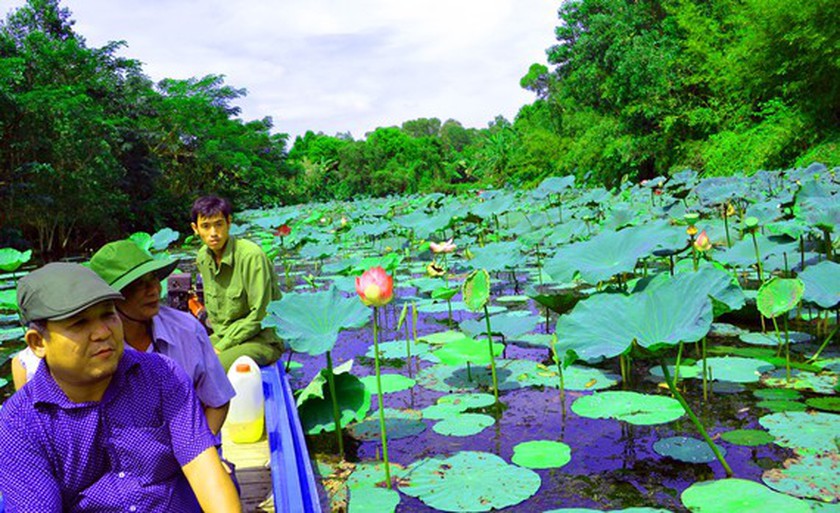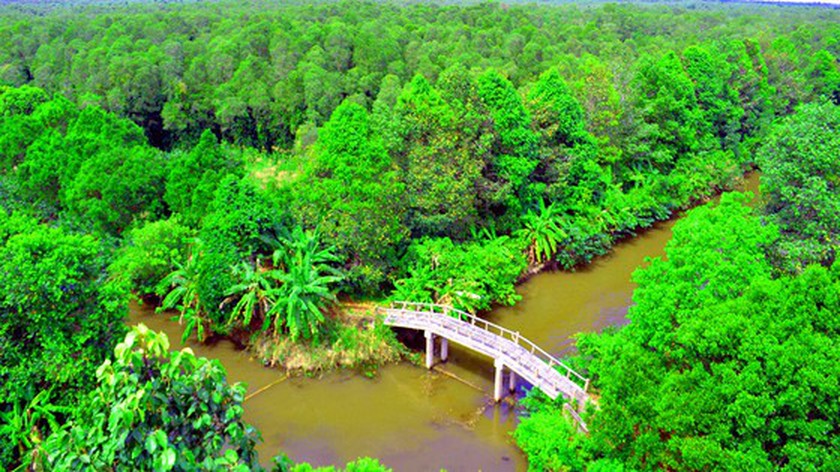The People’s Committee of Hau Giang Province has approved an ecological tourism project in the Lung Ngoc Hoang Nature Reserve in Phung Hiep District in June, offering an opportunity for visitors to explore one of the most famous tourist destinations of the province that is regarded as the “green lung” of the Mekong Delta region.

A corner of Lung Ngoc Hoang nature reserve (Photo: SGGP)
The province’s authorities made several surveys on the ecotourism development and a 2,800 ha space of the core area in the nature reserve in the past five years with the participation of local and foreign scientists and experts.
The project will focus on developing forms to tourism, including advaneture, scientific study, environmental education, travel and leisure activities.
The estimated capital expenditure of VND370 billion (US$16 million) will be mobilized from enterprises, households and the rental income of forest environment for ecotourism activities.
Stiermann Martin, general manager of the RiceField Lodge resort in the Mekong Delta City of Can Tho said that Lung Ngoc Hoang Nature Reserve is the most beautiful landscape in Vietnam. He has traveled to many places in the world but there is no place greater than Lung Ngoc Hoang.
The nature reserve is still wholly intact. It is amazing for travel agents specialized in offering tours to foreign visitors because they don’t know about the wonderful nature reserve located in the heart of the Mekong Delta region, said Director of Vong Tron Viet ( Vietnam Circle) Tourist Company, Phan Dinh Hue.
Covering on an area of 2,800 hectares, the most unique protected area featuring green grassland, cajeput forest, and swamp in the southern Vietnam is home of more than 500 plant species, including 330 Vascular plants (also known as Tracheophyta) of 92 families; 234 snake species, 77 fish species, 206 species of terrestrial vertebrates. The nature reserve comprises small reserves, such as Lung Sen, Lung Lon, Lung Tran.

A view from above of Lung Ngoc Hoang nature reserve (Photo: SGGP)
By Cao Phong – Translated by Kim Khanh